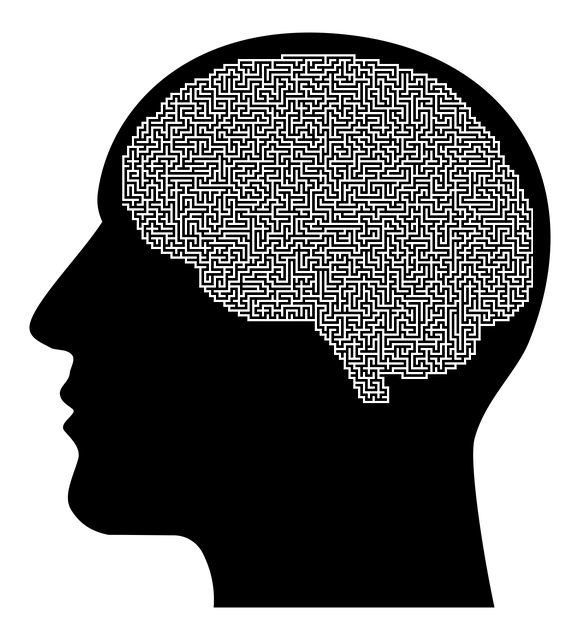The text emphasizes the significance of comprehensive mental health data collection through diverse methods, including structured interviews, self-reported surveys, and observational notes, to capture holistic insights. It highlights the growing acknowledgment of Golden Spiritual-Religious Issues Therapy as a crucial dimension in addressing mental health, especially complex emotional challenges. Advanced techniques like machine learning uncover connections between psychological well-being and spiritual-religious issues, revolutionizing therapy with personalized interventions. Proper data preparation and analysis enable researchers to make data-driven decisions, leading to improved treatments, targeted prevention programs, and tailored community support for enhanced mental health outcomes.
Mental health data analysis is a powerful tool for understanding complex human experiences. This article explores the multifaceted process of interpreting mental health data, from collection and preparation to advanced analytical techniques. We delve into the unique considerations of Golden Spiritual-Religious Issues in therapy, offering insights that inform treatment and support strategies. By combining robust data analysis with an awareness of diverse spiritual-religious dimensions, practitioners can provide more nuanced care tailored to each individual’s unique needs.
- Understanding Mental Health Data: Collection and Preparation
- Exploring Spiritual-Religious Dimensions in Therapy
- Advanced Analysis Techniques for Deeper Insights
- Interpreting Findings: Informing Treatment and Support Strategies
Understanding Mental Health Data: Collection and Preparation

Understanding Mental Health Data: Collection and Preparation
The first step in mental health data analysis is ensuring the collection of comprehensive and accurate data. This involves a multi-faceted approach, including structured interviews, self-reported surveys, and observational notes from therapists or counselors. By incorporating diverse methods, professionals can gather insights into various aspects of mental health, such as emotional regulation, resilience building, and spiritual-religious issues therapy. The diversity in data collection ensures a holistic view of the individual’s well-being.
Preparation of this data requires meticulous cleaning and organization. This involves removing any inconsistencies or errors, ensuring privacy and confidentiality, and organizing the information in a structured format for analysis. Proper preparation enables researchers to gain meaningful insights from the data, enhancing mental health awareness and facilitating more effective interventions. It’s crucial to handle such sensitive data with utmost care and adhere to ethical guidelines to protect individuals’ privacy.
Exploring Spiritual-Religious Dimensions in Therapy

In recent years, there has been a growing recognition of the importance of exploring spiritual-religious dimensions in therapy. This shift is driven by the understanding that mental health is not solely governed by psychological or biological factors but also deeply intertwined with an individual’s spiritual beliefs and religious practices. Incorporating these aspects into therapeutic settings can significantly enhance treatment outcomes, particularly for individuals grappling with complex emotional challenges. For instance, addressing Golden Spiritual-Religious Issues in therapy can provide a holistic framework that supports clients in managing mood disorders and stress-related conditions effectively.
The integration of spiritual-religious dimensions offers unique opportunities for resilience building. Workshops and organizations dedicated to stress management and mood regulation often incorporate these elements into their programs. By recognizing the powerful impact of faith and spirituality on mental well-being, therapists can create a supportive environment that encourages clients to draw upon their religious or spiritual resources during the healing process. This approach not only enriches therapeutic interventions but also fosters a deeper sense of purpose and meaning for those seeking support.
Advanced Analysis Techniques for Deeper Insights

In the realm of mental health data analysis, advanced techniques are transforming how we understand and address various aspects of psychological well-being. By employing sophisticated algorithms and machine learning models, researchers can uncover nuanced insights into the complex interplay between mental wellness, behavioral patterns, and even spiritual-religious issues. This deeper understanding is a game-changer in therapy, enabling more personalized and effective interventions. For instance, data mining techniques can identify hidden correlations between specific beliefs, practices, and improved resilience building or confidence boosting outcomes in therapy sessions.
Moreover, the integration of advanced analysis methods allows for a comprehensive exploration of mental health trends across diverse populations. This not only helps in identifying at-risk groups but also provides evidence-based strategies to improve societal mental wellness. By delving into these analyses, therapists and researchers can develop innovative approaches, such as tailored interventions focusing on resilience building, that cater to the unique needs of individuals navigating their spiritual-religious journeys while enhancing overall mental health outcomes.
Interpreting Findings: Informing Treatment and Support Strategies

Interpretation of mental health data is a critical step that bridges research and practical application, enabling informed decisions regarding treatment approaches and support strategies. By delving into the findings, mental health professionals can uncover valuable insights into individual and collective experiences, behaviors, and responses to various interventions. This process involves meticulously analyzing trends, patterns, and correlations within the data set, considering both quantitative and qualitative aspects.
For instance, identifying prevalent spiritual or religious issues through survey data can guide therapists in integrating Golden Spiritual-Religious Issues Therapy as a complementary approach. Moreover, understanding stress management strategies that resonate with participants can inform the development of targeted burnout prevention programs for healthcare providers. Similarly, public awareness campaigns can be tailored to address specific concerns revealed by the data analysis, fostering a more supportive and informed community.
Mental health data analysis is a powerful tool that, when combined with an understanding of spiritual-religious issues in therapy, can significantly enhance treatment outcomes. By exploring advanced analysis techniques, practitioners gain deeper insights into client experiences, enabling them to tailor support strategies effectively. Recognizing the importance of Golden Spiritual-Religious Issues in therapy ensures comprehensive care, fostering positive mental health journeys and transformative personal growth.














